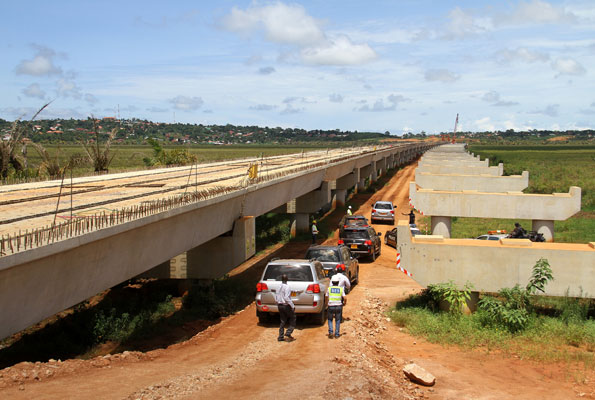
Uganda’s long term development blue print — Vision 2040 —stresses that the country’s tourism sector has the potential to earn Uganda about $12 billion every year.
However, a 2012 World Bank study entitled: “Uganda Tourism Sector Situational Assessment: Tourism Reawakening,” says the country is clearly not yet realizing its full potential as a tourism destination despite its unparalleled resource base comprising amazing natural features plus unique flora and fauna. Although over the last 15 years international tourism arrivals have more than quadrupled from about 250,000 in 2001, bottlenecks still hamper the country from realizing its full tourism potential.
Inconvenience versus disaster?
However, Cuthbert Baguma, a tourism consultant, looks at the recent Entebbe Rd blockade from a two dimension perspective. First, he says, he prefers to look at the issue as a “temporary inconvenience” for which the magnitude of adversity is not such a big issue in the medium and long term. If it was a permanent issue, he says, the magnitude of adversity would have been more longterm. “I don’t want to take an idealistic view of the industry because that situation does not exist,” he said. “There are challenge-specific destination issues for every destination and if this has been identified as one for Uganda, then the players in the sector should find a way of dealing with it.”
Herbert Byaruhanga, the chairman of the Uganda TourismAssociation (UTA), also noted that he understood the blockade to have been a temporary measure and compared to long-term effects of a worst case scenario, they would be able to cope with the temporary inconvenience. “We were disappointed but if you consider the security factor, the government had to ensure that the country is safe,” he said. “Imagine a situation whereby a foreign dignitary dies here because of laxity in security.”
He downplayed fears that the fact that tourists were disappointed would affect future travelers to Uganda. Byaruhanga could have been reading from a script of a 2012 CNN poll on consumers’ travel perceptions and behavioural trends.
Respondents from more than 70 countries were asked to identify key influencing factors in their decision-making process before travelling to a place for leisure or business.
There now needs to be more effort channeled towards light rail and air transport in between major towns
The survey found that ahead of cost, safety and security were of greatest concern when choosing an international travel destination for more than two thirds of global respondents. But reputation of the tourist destination was also a key factor for travellers.
The survey also asked them how they gather information prior to travel. About 55% of international visitors surveyed said they relied on recommendations and information got from family, friends and colleagues.
CNN noted that with reputation being a key factor, tourist boards would clearly continue to have a vital role to play in shaping international perceptions to encourage tourism growth in countries that are strong on tourism. It is perhaps for this reason that the government through the Uganda Tourism Board (UTB) in May commissioned three international public relations firms to spruce up the country in source markets in a new strategy intended to increase the country’s tourist arrivals. They comprise PHG Consulting for the North American market, Kamageo for the UK and Ireland, and KPRN for German-speaking Europe.
But is the government bent on projecting a skewed positive image abroad when the situation at home is the very opposite? The answer for Prof. Morris Ogenga Latigo, the Opposition MP for Agago North, is yes. He told The Independent on June 4 that the week-long fiasco along Entebbe Rd goes a long way in explaining the thinking of the people in government — “they think in terms of events instead of processes.”
But how come such drastic measures were not taken when Uganda hosted more high profile visitors during the 2007 Commonwealth Heads of Government Meeting or US President Bill Clinton (1998) and Pope Francis just a fewmonths ago?
Dr. Amin Tamale, an urban planning expert at Makerere University’s Department of Architecture and Physical Planning, said that in 1998, President Clinton arrived in Uganda at night and was put on a helicopter that transported him to Kampala.
He says Uganda is still capable of doing the same thing but its planning has been a bit messy lately. Still, Tamale says this is a reflection of a developing country because there are inherent infrastructural gaps.
“There now needs to be more effort channeled towards light rail and air transport in between major towns,” he says. “It is important to create a balance in the transport sector by prioritizing public transport.” Indeed, if the country had more than one international airport or more than one access road to the airport, the inconvenience occasioned by the visits of the Heads of State would have been minimal.
 The Independent Uganda: You get the Truth we Pay the Price
The Independent Uganda: You get the Truth we Pay the Price


